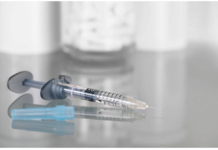How many glasses of water do you drink a day? Learn more about the importance of water for your body and health.
In our local food and in the food wheel, water is in the center of the wheel, this implies regular consumption, where the intake of it must be privileged over other drinks.
One of the objectives of the United Nations Organization for 2030 is “to guarantee access to drinking water and sanitation for all”.
Frequent water intake is a factor that promotes a healthy lifestyle. Water is the main constituent of the human organism since it represents about 50% to 70% of the body’s constitution.
The human brain is constituted by approximately 80% of water, water intake has direct repercussions in terms of brain functioning. Muscle tissue consists of about 70% to 75% water. Adequate intake allows for a better performance of cognitive function and enables the composition of blood rich in oxygen.
Water performs essential functions in the body, taking an active role in most of the physiological processes of our body:
- Transport of nutrients and waste disposal through urine;
- Regulation of body temperature through mechanisms such as the sweating process;
- Protection and lubrication of joints;
- Good functioning of muscle tissue;
- Contribution to the improvement of mood and cognitive functioning;
- Improvement of concentration and short-term memory;
- Protective action of cardiac function;
- Regulation of intestinal transit and prevention of constipation states;
- Participation in digestive and absorption processes;
- Decreases the risk of developing kidney disease;
- Preservation of skin elasticity;
- Body weight regulation;
- Appetite control.
The loss of water on the part of the organism occurs daily through breathing, sweat, urine, and feces, and the amount of water sufficient for the individual must be replaced. It’s also important that you must filter the water with RO filters or by boiling it.
To maintain adequate hydration, small amounts of water should be ingested throughout the day. In addition to water, other beverages such as tea, infusions, fruit juices, and/or foods with a high water content such as soup, salads, and fruit can be ingested.
Water is present in various foods and is used extensively to make them.
When should fluid intake be privileged?
Table of Contents
- When you really feel thirsty;
- When the urine has a dark hue and an intense smell;
- In situations of mood change, such as irritability;
- Fatigue, headaches, difficulty concentrating;
- High ambient temperature;
- Situations of fever, vomiting, constipation, and diarrhea;
- Practice physical activity.
Throughout life, water needs vary according to the age group in which the individual is. In pregnant women, breastfeeding women, the elderly, and individuals who practice physical exercise, the water needs will be increased, the same happens in the summer when there is an increase in the ambient temperature and, consequently, an increase in water losses through transpiration.
It is recommended to consume at least 1.5L / day for the adult population, which is equivalent to approximately 8 glasses of 200mL. In addition to this recommendation, the amount of water ingested through food consumption should be considered. The recommended daily amount should be spread over the day and according to individual needs.
The feeling of thirst tends to decrease with advancing age, and water intake should be encouraged in all age groups, but mainly in the elderly population. To avoid diseases such as diarrhea and typhoid fever, keep your water clean by using an inline water filter. This will continuously filter water in your kitchen, providing comfort that your household is drinking safe water.
In individuals who have kidney disease or heart failure, there may need to be a restriction of water intake.
Dehydration occurs when water losses in the body are greater than its replacement, resulting in an imbalance in the electrolyte balance in the concentration of sodium and potassium.
The state of dehydration is associated with the development of renal pathologies and the worsening of health problems such as asthma, cardiovascular diseases, and constipation.
Signs and symptoms of dehydration:
- Decrease in the amount of urine excreted;
- Irritability;
- Headache;
- Concentrated urine, darker shade, and intense odor;
- Fatigue;
- Dry mouth.
Strategies to increase water intake
Promoting water intake is a priority to ensure the health of the population.
When there is difficulty in reaching the recommendations, strategies should be adopted to increase intake, with the aim of meeting needs, such as:
– Add soup to the main meals;
– Always have a bottle of water;
– Drink a glass of water before meals;
– Use an application to record water consumption and create alerts for water intake at certain times;
– Freeze a bottle to keep it fresh;
– Opt for flavored waters;
– Consume foods with a high water content such as fruits, raw or cooked vegetables, salads, and soups;
– Ingest teas and/or infusions (without added sugar).
Water is present in most foods and how it is made influences our daily water intake.
Hydration and physical activity
Water intake should be promoted before, during, and after exercise. During the practice of physical activity, water loss occurs essentially through perspiration.
The frequency and amount to eat vary depending on the duration and intensity of the training, atmospheric conditions, and individual characteristics.
Conclusion
Water is the component in the greater quantity that exists in the human body and can be obtained through the ingestion of liquids and food.
It has been scientifically demonstrated that the population does not drink the recommended daily amount of water.
Regular water consumption prevents the emergence of chronic diseases related to food, such as obesity, as water is ingested at the expense of sugary drinks that in excess lead to the emergence of pathology.
Children, the elderly, and dependent people are at a greater risk of suffering from dehydration, as access to ingestion may be dependent on someone else or the perception of thirst has been reduced with advancing age.
Currently, there is an increase in hospitalizations caused by dehydration, being the second most common comorbidity in 14% of hospitalizations.
Drinking water in the recommended daily amount has health benefits in several physiological processes, such as regulating body temperature, improving cognitive performance, constipation, controlling appetite, maintaining weight, and preventing the onset of kidney and chronic diseases.
———————————————————————————————-
Author Bio
Name- Sunil Trivedi
Bio- Sunil Trivedi is the Managing Director of Aqua Drink. With 15 years of experience in the water purification industry, Sunil and his team have been ensuring that his clients consume 100% potable water to lead a healthy life and keeping water-borne diseases miles away.







